BYD Seal VS Nissan Leaf – Specs, Efficiency & Price Comparison
Find out now which car fits your needs better!
The BYD Seal (Sedan) is powered by a Electric engine and comes with a Automatic transmission. In comparison, the Nissan Leaf (Hatchback) features a Electric engine and a Automatic gearbox.
When it comes to boot capacity, the BYD Seal offers 400 L, while the Nissan Leaf provides 394 L – depending on what matters most to you. If you’re looking for more power, you’ll need to decide whether the 530 HP of the BYD Seal or the 217 HP of the Nissan Leaf suits your needs better.
There are also differences in efficiency: 16.60 kWh vs 16.70 kWh. In terms of price, the BYD Seal starts at 40300 £, while the Nissan Leaf is available from 30800 £.
Compare all the key specs now and find out which model fits your lifestyle best!
BYD Seal
The BYD Seal represents a sleek fusion of innovative technology and stylish design, setting it apart in the competitive electric vehicle market. With its aerodynamic silhouette and premium interior finishes, the car offers a driving experience that is both comfortable and exhilarating. Enthusiasts are particularly impressed by the seamless integration of advanced features that prioritise safety and convenience.
details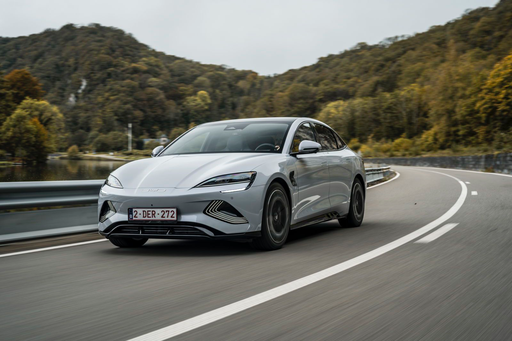 @ press.bydauto.be
@ press.bydauto.be
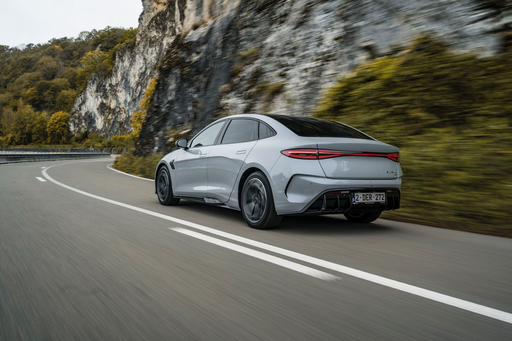 @ press.bydauto.be
@ press.bydauto.be
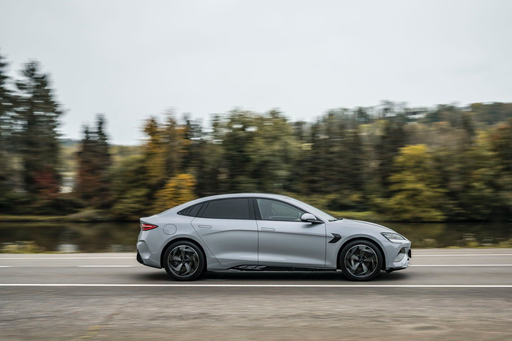 @ press.bydauto.be
@ press.bydauto.be
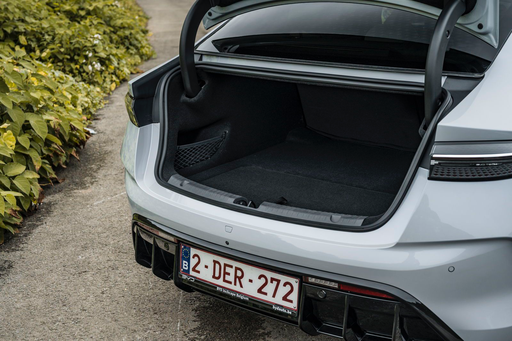 @ press.bydauto.be
@ press.bydauto.be
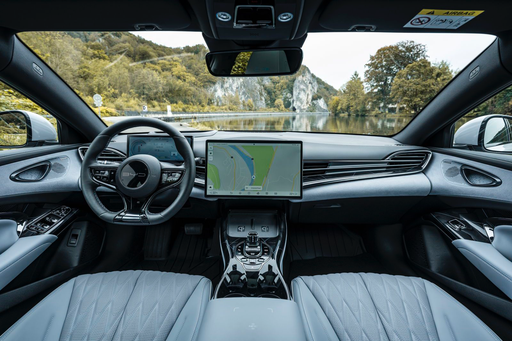 @ press.bydauto.be
@ press.bydauto.be
Nissan Leaf
The Nissan Leaf stands out as a pioneering model in the realm of electric vehicles, known for its impressive blend of practicality and eco-friendliness. It offers a smooth and quiet driving experience, making it an ideal choice for city commuting and longer journeys alike. The interior design is both comfortable and intuitive, providing drivers with a sense of modernity and ease of use.
details @ germany.nissannews.com
@ germany.nissannews.com
 @ germany.nissannews.com
@ germany.nissannews.com
 @ germany.nissannews.com
@ germany.nissannews.com
 @ germany.nissannews.com
@ germany.nissannews.com

|

|
|
|
|
Costs and Consumption |
|
|---|---|
|
Price
40300 - 43700 £
|
Price
30800 - 37200 £
|
|
Consumption L/100km
-
|
Consumption L/100km
-
|
|
Consumption kWh/100km
16.6 - 18.2 kWh
|
Consumption kWh/100km
16.7 - 17.8 kWh
|
|
Electric Range
520 - 570 km
|
Electric Range
270 - 385 km
|
|
Battery Capacity
-
|
Battery Capacity
39 - 59 kWh
|
|
co2
0 g/km
|
co2
0 g/km
|
|
Fuel tank capacity
-
|
Fuel tank capacity
-
|
Dimensions and Body |
|
|---|---|
|
Body Type
Sedan
|
Body Type
Hatchback
|
|
Seats
5
|
Seats
5
|
|
Doors
4
|
Doors
5
|
|
Curb weight
2055 - 2185 kg
|
Curb weight
1580 - 1756 kg
|
|
Trunk capacity
400 L
|
Trunk capacity
385 - 394 L
|
|
Length
4800 mm
|
Length
4490 mm
|
|
Width
1875 mm
|
Width
1788 mm
|
|
Height
1460 mm
|
Height
1540 - 1545 mm
|
|
Payload
446 kg
|
Payload
384 - 415 kg
|
Engine and Performance |
|
|---|---|
|
Engine Type
Electric
|
Engine Type
Electric
|
|
Transmission
Automatic
|
Transmission
Automatic
|
|
Transmission Detail
-
|
Transmission Detail
Reduction Gearbox
|
|
Drive Type
Rear-Wheel Drive, All-Wheel Drive
|
Drive Type
Front-Wheel Drive
|
|
Power HP
313 - 530 HP
|
Power HP
150 - 217 HP
|
|
Acceleration 0-100km/h
3.8 - 5.9 s
|
Acceleration 0-100km/h
6.9 - 7.9 s
|
|
Max Speed
180 km/h
|
Max Speed
144 - 157 km/h
|
|
Torque
360 - 670 Nm
|
Torque
320 - 340 Nm
|
|
Number of Cylinders
-
|
Number of Cylinders
-
|
|
Power kW
230 - 390 kW
|
Power kW
110 - 160 kW
|
|
Engine capacity
-
|
Engine capacity
-
|
General |
|
|---|---|
|
Model Year
2023
|
Model Year
2019
|
|
CO2 Efficiency Class
A
|
CO2 Efficiency Class
A
|
|
Brand
BYD
|
Brand
Nissan
|
BYD Seal
The BYD Seal: An Electrifying Presence on the Road
Amidst the growing popularity of electric vehicles (EVs), the BYD Seal stands out as a compelling choice. With its sleek saloon design and a plethora of cutting-edge features, this model holds its own in the competitive market of eco-conscious automobiles.
Technical Specs that Speak Volumes
The BYD Seal comes in two key variants, each offering a distinct driving experience yet retaining a common emphasis on performance and efficiency. The power output ranges from a robust 313 PS to an exhilarating 530 PS, ensuring that whether you choose the rear-wheel drive or the all-wheel-drive option, you won't be short of thrills.
Performance enthusiasts will also appreciate the remarkable acceleration capabilities; the Seal can go from 0 to 100 km/h in as little as 3.8 seconds. Complementing its acceleration is its astounding maximum torque, reaching up to 670 Nm, making it adept at handling various driving conditions.
Efficiency Meets Innovation
BYD has engineered the Seal to optimise energy consumption without compromising on performance. The car boasts a commendable energy consumption range of 16.6 - 18.2 kWh/100km, reflecting its efficiency-focused design. Coupled with an impressive electric range of up to 570 km, the Seal is poised for longer journeys without frequent recharging interruptions.
Design and Comfort
The BYD Seal's aesthetic appeal is underscored by its sleek saloon body and precise dimensions: 4800 mm in length, 1875 mm in width, and standing at a height of 1460 mm. These dimensions create a dynamic yet spacious presence on the road, ensuring both an aerodynamic performance and a comfortable interior for up to five passengers.
Inside, the Seal is designed with driver and passenger comfort in mind, featuring a well-crafted interior and advanced technology to enhance the driving experience. The boot offers 400 litres of space, catering to practical needs without compromising on style.
Innovative Features for a Modern Drive
The Seal doesn’t just rely on its electric credentials to make an impact. BYD integrates a host of modern technologies and safety features, ensuring that the driving experience is both innovative and secure. The inclusion of a single-speed reduction gear contributes to a smooth driving experience, enabling efficient transitions in speed.
Safety is further assured with the Seal's high CO2 efficiency rating of class A, underlining its efficacy as a sustainable mode of transport that does not contribute to emissions. Given these progressive features, it's clear that the BYD Seal aligns with the evolving expectations of modern drivers looking for an eco-friendly yet high-performing vehicle.
Conclusion: Future-Ready Efficiency
With a competitive price range starting from €44,990, the BYD Seal represents excellent value for those seeking a blend of performance, efficiency, and modern technology. As sustainable transportation becomes a priority globally, the Seal positions itself as a pioneering force in the electric vehicle market, offering a future-ready driving solution that can meet the needs of today's discerning car buyers.
Nissan Leaf
Introduction to the Nissan Leaf: A Pioneer in Electric Mobility
The Nissan Leaf has established itself as a trailblazer in the realm of electric vehicles (EVs) since its launch. As we delve into its present-day iterations, the Leaf continues to soar in popularity due to remarkable advancements in technology and sustainability. Let's explore what makes the Nissan Leaf a standout in today's automotive market.
Power and Performance: Under the Hood of the Nissan Leaf
The Nissan Leaf boasts a power output ranging from 150 to 217 PS, depending on the battery option chosen. The vehicle's electric motor, a product of cutting-edge engineering, offers instant torque ranging from 320 to 340 Nm, resulting in impressive acceleration capabilities. The 0 to 100 km/h dash is achieved in as little as 6.9 seconds, showcasing its prowess in electric performance.
Battery Technology: Efficient Energy Management
When discussing the Nissan Leaf, battery technology is at the forefront. The available battery capacities range from 39 to 59 kWh, supporting an electric range between 270 to 385 km. This flexibility allows drivers to choose a model that best fits their driving habits, providing peace of mind for longer journeys without frequent recharging.
Sustainability: The Environmental Edge
One of the primary attractions of the Nissan Leaf is its commitment to sustainability. As an all-electric vehicle, it produces zero CO2 emissions, placing it in the top tier of the CO2-efficiency class with an 'A' rating. This clean energy approach contributes significantly to reducing environmental impact and supports Nissan's drive towards a greener future.
Design and Comfort: Aesthetic Appeal and Practicality
The Nissan Leaf is not just about efficiency; it's also designed for comfort and utility. With its sleek hatchback body and dimensions of 4490 mm in length, 1788 mm in width, and a height of up to 1545 mm, it offers ample interior space. The boot capacity ranges from 385 to 394 litres, providing sufficient storage for everyday needs. The model accommodates five passengers comfortably, ensuring a pleasant ride for everyone.
Innovations and Safety: Advanced Features for Peace of Mind
Nissan equips the Leaf with an array of intelligent features that enhance safety and convenience. The available equipment lines, including N-CONNECTA, Tekna, e+ N-CONNECTA, and e+ Tekna, offer varying levels of technology integration. ProPILOT Assist, e-Pedal, and a comprehensive suite of driver-assistance technology are just a few examples that highlight Nissan's commitment to innovation in the EV market.
Conclusion: The Nissan Leaf Continues to Lead
With prices ranging from €35,900 to €43,400, the Nissan Leaf remains an attractive choice for those looking to embrace electric mobility. It perfectly balances performance, design, and sustainability, making it a compelling choice in the competitive EV landscape. The Nissan Leaf not only represents the future of driving but also reinforces why it continues to be a leader in the electric vehicle community.
The prices and data displayed are estimates based on German list prices and may vary by country. This information is not legally binding.
